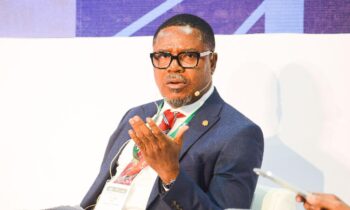The Federal Executive Council (FEC) on Wednesday finally gave approval for the NNPC to enter into an agreement with ECOWAS for the construction of the Nigeria-Morocco Gas Pipeline.
Minister of State for Petroleum Resources, Timipre Sylva, briefed State House correspondents after the FEC meeting presided over by Vice President Yemi Osinbajo on Wednesday at the Presidential Villa, Abuja.
In May 2022, it was reported that the OPEC Fund for International Development (OFID) planned to contribute US$14.3 million to fund the implementation of the second phase of the pipelines FEED (front-end engineering design)study, to thoroughly plan the project before cost and financing estimates could be finalized.
The Australian engineering company WorleyParsons Limited was contracted to carry this out via its subsidiary Intecsea, based in The Hague, Netherlands.
The Minister said the project was still at the point of the front-end engineering design after which the cost would be determined.
He said the pipeline would traverse 15 West African countries to Morocco and Spain.
“The Ministry of Petroleum Resources presented three memos to Council.
“The first memo, Council approved for the NNPC Ltd to execute MoU with ECOWAS for the construction of the Nigeria-Morocco Gas Pipeline.
“This gas pipeline is to take gas to 15 West African countries and to Morocco and through Morocco to Spain and Europe,’’ he said.
According to him, the council also approved the construction of a switchgear room and installation of power distribution cables and equipment for the Nigeria oil and gas park in Ogbia, Bayelsa, in the sum of N3.8billion.
He said the park was to support local manufacturing of components for the oil and gas industry.
More so, Mr. Sylva said that FEC approved various contracts for the construction of an access road with bridges to the Brass Petroleum Product Deport in Inibomoyekiri in Brass Local Government in the sum of N11billion plus 7.5 percent VAT.
The pipeline would connect Nigerian gas to every coastal country in West Africa (Benin, Togo, Ghana, Cote d’Ivoire, Liberia, Sierra Leone, Guinea, Guinea-Bissau, Gambia, Senegal, and Mauritania), ending at Tangiers, Morocco, and Cádiz, Spain.
The Nigeria-Morocco Gas Pipeline was proposed in a December 2016 agreement between the Nigerian National Petroleum Corporation (NNPC) and the Moroccan Office National des Hydrocarbures et des Mines (National Board of Hydrocarbons and Mines) (ONHYM).
The pipeline would connect Nigerian gas to every coastal country in West Africa (Benin, Togo, Ghana, Cote d’Ivoire, Liberia, Sierra Leone, Guinea, Guinea-Bissau, Gambia, Senegal, and Mauritania), ending at Tangiers, Morocco, and Cádiz, Spain. It would apparently be an extension of the existing West African Gas Pipeline, which already connects Nigeria with Benin, Togo, and Ghana.
In August 2017, NNPC and ONHYM began a feasibility study for the pipeline. The pipeline is estimated to cost US$25 billion, and would be completed in stages over 25 years.
Morocco is reportedly pushing Nigeria to pursue this pipeline rather than the Trans-Saharan Gas Pipeline, arguing that the latter would have to pass through a region with significant militant activity.[9]
NNPC and ONHYM completed the feasibility study for the construction of the pipeline in January of 2019.In the same month, the two countries contracted with Penspen to conduct the first phase of front-end engineering & design.
In August 2019, NNPC and ONHYM presented the pipeline proposal at a special meeting of the Economic Community of West African States (ECOWAS); the Director of Energy and Mining of ECOWAS spoke positively of the project.
However, according to analysts at Fitch Solutions Macro Research, NMGP “faces a myriad of challenges and is ‘unlikely to materialize in the short or medium-terms.
By March 2020, according to Africa Intelligence, the front-end engineering & design had entered the second phase.
In June 2021, there were reports that pipeline construction had begun. However, evidence still seems to suggest that the pipeline is in a pre-construction phase, so it is still considered proposed.
Based on the 25-year estimate given in 2017, construction will be completed by 2046.
olusola Bello





